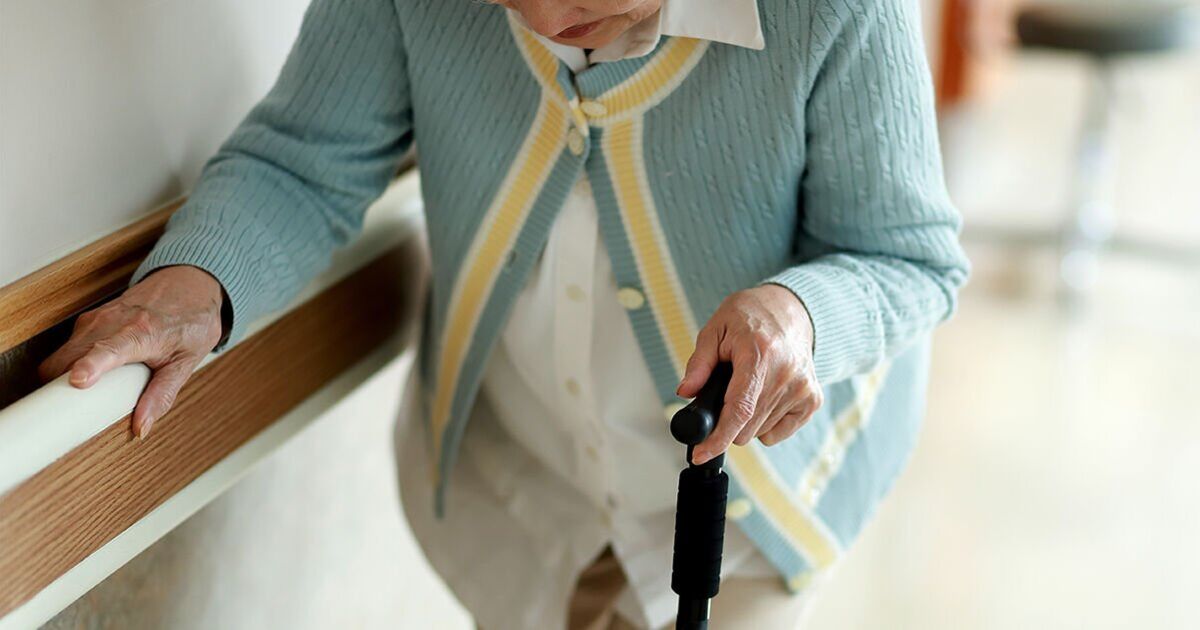It is thought almost one million Britons are currently living with dementia, a devastating syndrome that causes the ongoing decline of the brain. This figure is expected to rise due to our ageing population.
Many of us are aware of some of the well-known symptoms of dementia. These include memory loss, reduced thinking speed and difficulty carrying out everyday tasks.
However, there are some less well-known signs that could be indicators of the condition. One expert warned that certain symptoms can appear when someone is walking.
According to Dr Henk Swanepoel, lead psychologist at Cygnet Health Care, “shuffling” is one such warning sign. The affected person might also fall or slip more frequently than usual.
Dr Swanepoel explained: “One might notice the person is shuffling when walking or at times behaviour such as slipping or falling can become more common.”
The Alzheimer’s Society lists this as a sign of later-stage dementia.
“At this stage they may walk more slowly, with a shuffle and less steadily – eventually they may spend more time in a chair or in bed,” the charity says.
They might also be at “increased risk of falls,” it adds.
The charity warns that this can put the affected person at risk of other dangerous health problems.
“The person’s reduced mobility, in particular, raises their chances of blood clots and infections,” it says. “These can be very serious or even fatal so it is vital that the person is supported to be as mobile as they can.”
How a person moves can also signal lewy body dementia – a specific type of slow-developing dementia that causes slow movement, stiff limbs and tremors (uncontrollable shaking), according to the NHS.
Dr Swanepoel shared a few other physical signs of dementia.
“Physically, a patient with dementia may present with slow movements, incontinence and swallowing difficulties,” he said.
“The deterioration results in significant care needs cognitively as well as physically.”
What to do if someone displays symptoms
If any signs of dementia are displayed by a loved one, Dr Swanepoel advised you to speak to a doctor or dementia clinic for a diagnosis and potential treatment.
He continued: “Once the diagnosis has been confirmed, try and approach all behaviour as a form of communication or a message, for example, anger can be a message of confusion, fear or pain.
“Try to identify triggers as soon as possible, e.g. a break in a person’s routine might cause upset.
“Distraction can be effective by focusing on what the person enjoys, going for a walk.
“A daily routine can also be very effective which creates structure and predictability.”










